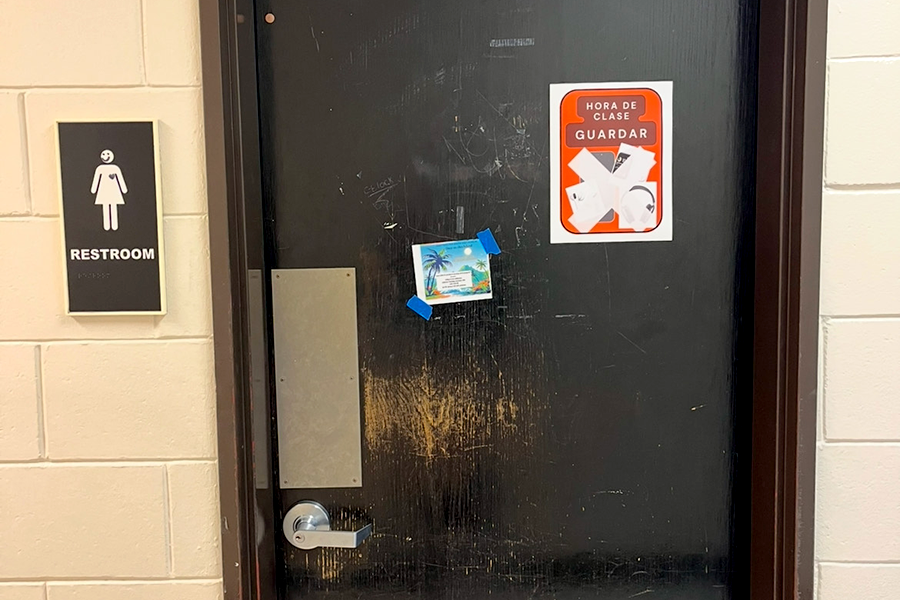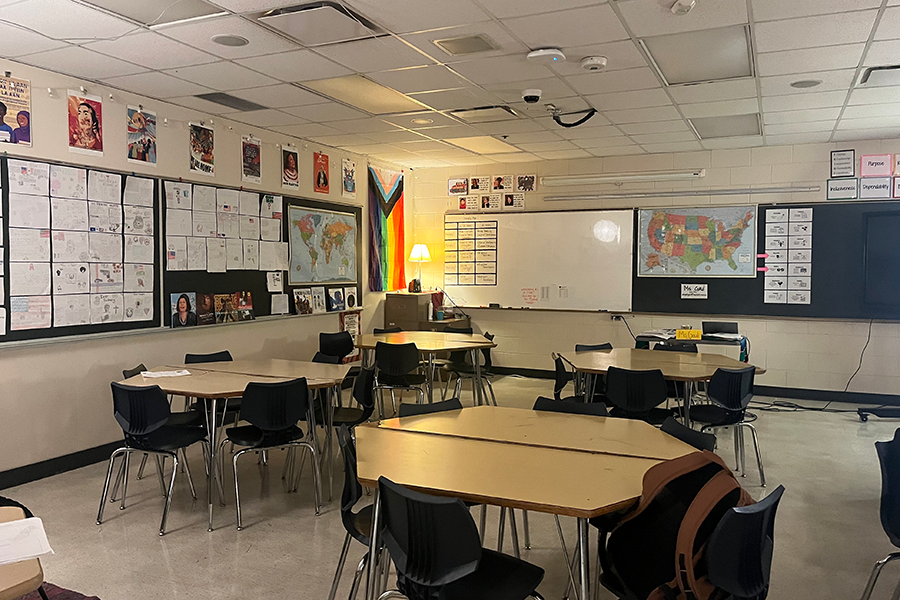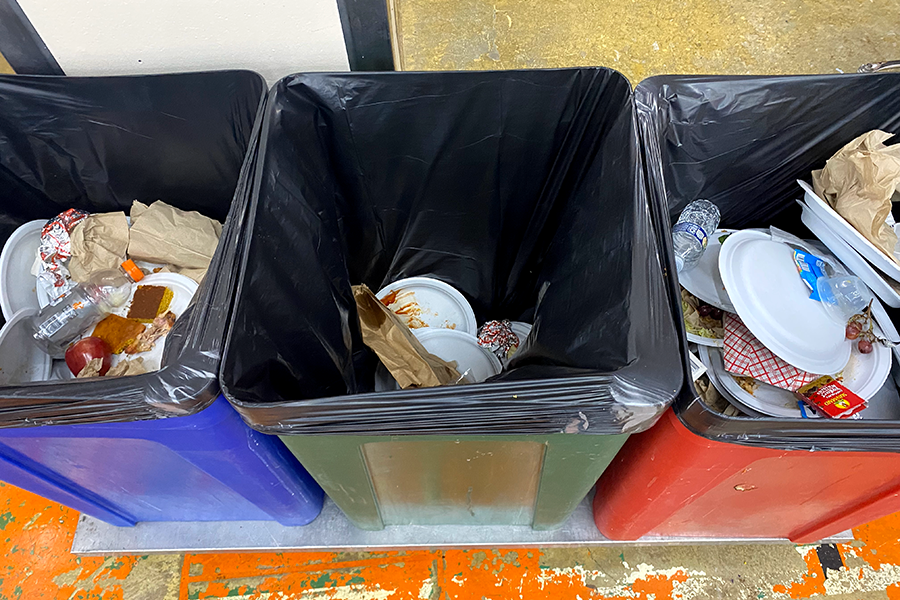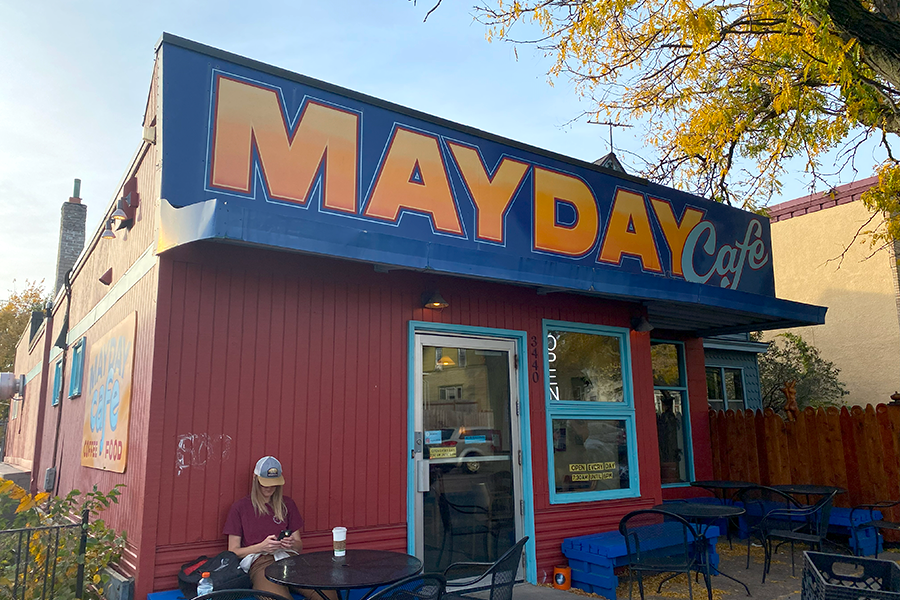“Cheating is a part of life,” said senior Sam Holt. He defined cheating as “turning in work that isn’t yours.” This includes copying someone else’s answers on worksheets, tests, or even taking essays off the internet. It could also include cheat sheets for tests or looking things up on your phone, anything that is disingenuous and does not accurately depict your knowledge. But how common is this at South?
Cheating is Common
“Most people I know will cheat,” said senior Tony Pnewski, acknowledging that cheating happens daily and that a large percentage of students participate.
Fellow senior Lillie Benowitz said, “I think it’s pretty well accepted as something that happens, but I don’t think everyone necessarily participates in it.”
So just how common is cheating at South? According to a survey conducted among South students, 86% of students admitted to having cheated at some point in their academic lives. 86% is a large majority.
But how often are these students cheating? 13% of students reported cheating ‘almost every day’ while 32% said they cheated ‘at least once a month.’
Grade pressure motivates cheating
The reasons that students cheat are varied, but most are easy to understand. The reasons vary from too much work to too much effort to the overall difficulty of the work.
Sophomore Joey Flora shared his experience when he said, “The harder the class the more likely that people will end up cheating.” Pnewski expanded on this idea, saying, “they feel like they need to get good grades, but it’s hard to work hard to get those good grades.”
Pnewski discussed the evolution of his views on cheating. “When you’re a freshman you’re freaked out, at least in my personal experience, and I never cheated at all really because it was scary. Sophomore year, then you start getting into harder classes and you’re like ‘oh crap, theres a lot of work to do!’ so you start,” he explained.
Senior Greta Hagedorn said, “People get a worksheet every day, and then if they don’t do them when they’re assigned, it’s so overwhelming that there is really no way for them to do it except for cheating.”
Social studies teacher Daniel Anderson was able to see this issue.
“I know some of the students feel this way, that [teachers] don’t communicate with each other to kinda space out the homework. Sometimes they’ll have two weeks or a week with barely any homework, and then the teacher will do like a paper in this class, and a project in this class,” he said.
“They just pile it on and it’s too much. So they just feel the need like, ‘If I don’t cheat, if I don’t copy somebody’s paper, I’m not gonna get this done.’’’
Math teacher Jonathan Krasean spoke to the complex nature of cheating. “It’s like many things in life that you can understand, but you can’t condone. That doesn’t necessarily mean its right, but I can understand their point of view.”
Krasean speculated on what causes students to cheat, saying, “between your peers or your parents or just what the school offers, I feel like so many kids feel like they have to have straight A’s.”
Science teacher Kate Rosok agreed, adding that students face “the fear of a teacher judging them poorly and thinking they’re not smart, or their family or their friends thinking they’re not smart so they feel like they have to cheat to get that score.”
Cheating harms the learning process
“Cheating at its heart is a really sad situation because it seems like it’s evidence of a breakdown in the learning process,” said Rosok.
Krasean expanded on this, saying that, “It’s a problem because you’re not showing your own work and your grade fundamentally represents what you know, and if your grade doesn’t represent what you know, there is a flaw in the system.”
Spanish teacher Sheila Willette agreed when she said, “If you cheat and try to pass off somebody else’s work as your own, clearly you’re not absorbing the content and you’re not able to demonstrate comprehension because you haven’t done the work.”
“We, as teachers, consider ourselves [to be] lifelong learners, and that’s the goal that I try to achieve with my students in my class. Not to learn one particular thing, but to have them be curious about life and about the subject matter,” said Anderson.
“I know sometimes kids cheat with things that are just in that moment, like they’re not gonna learn that stuff, they’re not going to retain that stuff, so it’s not really important to them, but I think that teachers are just kind of offended that they’re not taking education seriously, that they’re kinda cheating themselves.”
“We’re trying to grow learners, we’re not just trying to grow people that get good grades,” said Willette.
“The thing that bothers me most about cheating is that I work really hard to make a meaningful lesson or unit, and I want them to learn it. I don’t want them to regurgitate it, I want them to experience it and learn it and I want them to use it to keep going.”
Grading system seems to encourage cheating
“The competitive nature and atmosphere of academics motivates and influences people to do the best they can, even if it requires plagiarism, which then sort of voids the result because it’s not genuine,” said sophomore Charlie Lincoln.
Students almost unanimously alluded to chasing a grade as being why they cheat. “l feel like people know its bad, but they do it anyway because they want a better grade,” said Flora.
Teachers recognize this as a problem as well. “We put so much emphasis on grades that that’s the holy grail for students. Thats how they think we gauge success,” said Willette.
English teacher Tanya Hodge spoke to students’ quest for points as one of the biggest hindrances to learning.
She said, “I’m not speaking for anyone else, but when I hear, ‘I need these points!’ or ‘Can I get bonus points?’ or ‘What about extra credit?’ I’m thinking, ‘What kind of learning is going on?’”
Holt offered a solution to the problem by suggesting we change the way we think about school.
“I think we need to shift the focus off of grades and college and move more towards learning,” he stated.
Hagedorn said “If you’re interested in the subject material you will be more likely to try to learn something.”
More open communication between students and teachers
Teachers and students both recognized that one way to prevent cheating is to increase communication.
Hodge said, “I feel like if a student really feels like something, a piece of homework, is superfluous or busy work, they should talk to the teacher.”
Hodge also expressed an idea for one possible solution as an open dialogue. “I think one way to stop it really has to be, it can’t be a top down, it has to be a discussion between students and teachers.”
Rosok acknowledged this lack of conversation when she said, “we don’t take time to sit down in our classrooms and talk about cheating.”
Willette echoed this sentiment, saying, “I think the discussion has to be had many times throughout the year about academic honesty, because that’s foundationally the most important message here.”
Many teachers agreed that some sort of repercussion should occur, but most were still in the process of determining just how severe that punishment should be.
“I’m not necessarily adhering to this, but one way to cut down cheating is to have the penalties be more severe,” said Anderson.
“I don’t know where you draw the line. Like if you cheat on a test, is that the most important? Or if you copy a paper from the internet, or if you’re just copying today’s homework. I don’t know if it should be zero tolerance for any of that or if just on these higher point value, high stakes things like tests and papers and projects.”
Taking responsibility for learning
Almost all teachers agreed that in order to stop cheating, or at least limit its prevalence, students need to accept a level of responsibility.
Willette said, “Ultimately it lies within the student. It is their accountability, it’s their responsibility. Cheating has been around forever. I don’t imagine cheating as going away anytime soon.”
Rosok more or less agreed. She posed the question, “What happens if we ask our students to be more responsible instead of assuming our students are going to be less responsible. So what would it look like if we had an honor code?”
Hodge recognized that she can only do so much, and that if students fail to do their own work, they will have to suffer the consequences in the future.
She said, “I like to trust students and think if I don’t catch them then, it will come back. The repercussions and consequences will come back later if they continue to try and do that beyond me.”
Teachers are understanding of students’ shortcomings. “They are young adults that are evolving and are going to make mistakes. The interesting thing to me is to see how the react to me after they have made the mistake.” said Willette.
She continued by saying she requires a level of integrity of students, “I don’t expect anybody in my classes to be perfect, I’m certainly not perfect, but I am honest and I expect them to be honest too.”
Students and teachers both agree that cheating is something that happens, but because it happens does not mean it is something that can’t be lessened.
There is not one single approach that will ‘solve’ cheating. Rosok said, “It’s good to have lots of tools in the toolbox.”






